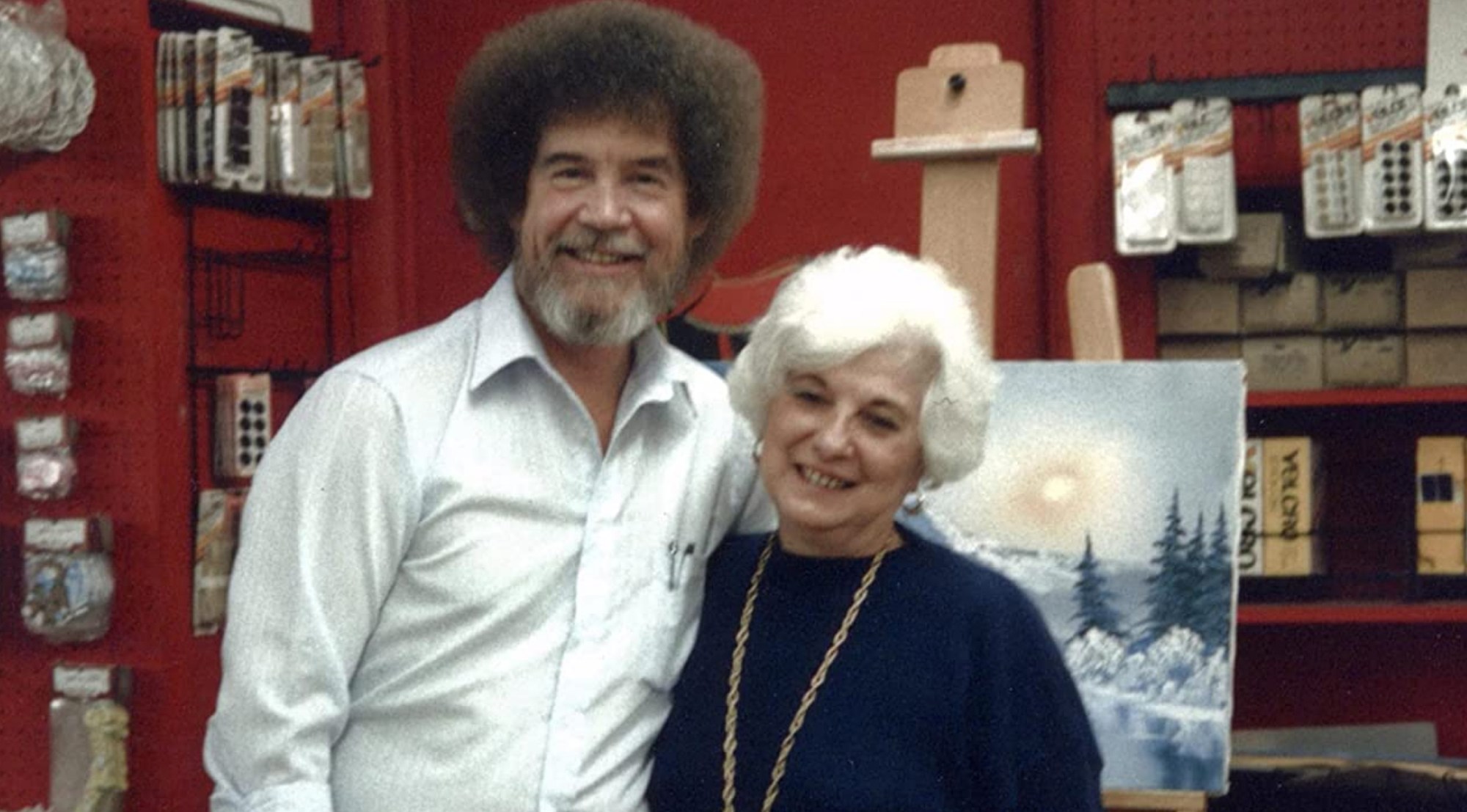
- Film
Docs: “Bob Ross: Happy Accidents, Betrayal & Greed”
The title of the new Netflix original documentary Bob Ross: Happy Accidents, Betrayal & Greed, produced by Melissa McCarthy and her husband Ben Falcone, seems to augur the heady examination of a blend of jostling, at-odds impulses. And it’s true that there is a good bit of lurid legal wrangling in the movie, which details the battle over the estate of the genteel-voiced host of the instructional show The Joy of Painting, an Emmy Award-winning television series that ran for 31 seasons across 11 years before Ross died at age 52 in 1995 from Non-Hodgkin’s lymphoma. But its telling nevertheless feels slightly off, resulting in a film that touches intrigue but never truly blossoms into something lastingly memorable, perhaps because of questions it is both unable and unwilling to ask.
With his soothing mien and distinctive permed hairstyle, Ross was a positive-minded peddler of daily affirmations and a devoted advocate of Everyman artistic exploration, deconstructing the painting process into simple steps so that at-home viewers could follow along. Using a 16th-century painting style known as alla prima, or “wet-on-wet,” Ross rendered pleasant oil landscapes in only 26 minutes, the live-to-tape length of one episode of his show. His easygoing, encouraging personality made him widely beloved and, in a pre-Internet era, something of a cross between an adult-audience version of Mr. Fred Rogers (whose children’s show was also a generational staple on American PBS stations) and an art therapist (his voice, a consciously adopted contrast with one of his mentors, reportedly even triggered ASMR-like responses in some watchers).
A 20-year military man, Ross retired from the Air Force in 1981, when his earnings as a painter could match his salary. He became a traveling salesman and teacher, linking up with Annette and Walter Kowalski. The latter was a retired CIA employee looking for a second career, and the former his wife nursing desperate loneliness from the passing of their son. They would start off slowly, but together with Ross and his second wife Jane eventually build up a cottage empire. The success of The Joy of Painting paved the way for tutorial recordings, in-person seminars from officially sanctioned instructors, and a line of art supplies.
To its credit, while it exhibits great respect for Ross throughout, Happy Accidents, Betrayal & Greed doesn’t tip over into empty-calorie hagiography. Chats with early instructor John Thamm and longtime coworker Sally Schenk humanize Ross, and art historian Julia Friedman is on hand to offer contextualized analysis of his work that doesn’t exaggerate his achievements. Ross was, it seems, basically a very nice, if naïve, man who took whatever natural gifts he had and simply honed them through enthusiastic practice.
Unfortunately, director Joshua Rofé and editor Allan Duso never quite locate a sensible framework for connecting the manipulation Ross may have experienced during his life (by way of a shrewdly drawn-up contract, the death of Jane left Ross outvoted 2-1 in business matters); the undisguised attempts to get him to sign over his name, image and likeness during the last months of his life; and the reasonably established exploitation which continues. It’s true that owing to the litigious nature of the Kowalski’s, the filmmakers can’t secure interviews with certain parties. But Rofé also misunderstands, or perhaps simply does not want to try, ways to circumvent that impediment.
After ceding much of its 92-minute running time to a narrative guided by Ross’s son Steve, it’s late, nearly 70 minutes in, that the movie first internationalizes the last two words of its title, by way of the introduction and interview of a Dutch art world player. This jump is jarring. This portion of the story (as well as a stronger elucidation of Ross’s relationship with his half-brother Jimmie Cox) feels integral to better understanding why and how the Kowalski’s have been able to remain stewards of Ross’s image even after his death. Perhaps most heartbreakingly, in another thread raised but unexplored, the film also touches upon the possibility that sharing the very thing he loved actually contributed to Ross’s death – that his close, prolonged, unventilated exposure to the paint thinner used to repeatedly clean his brushes played a part in his cancer.
If its shortcomings elicit frustration, Happy Accidents, Betrayal & Greed at least shines a loving light on Bob Ross and allows for both his positivity and a greater appreciation of nature – two traits of which the world could currently surely use more – to come through.

